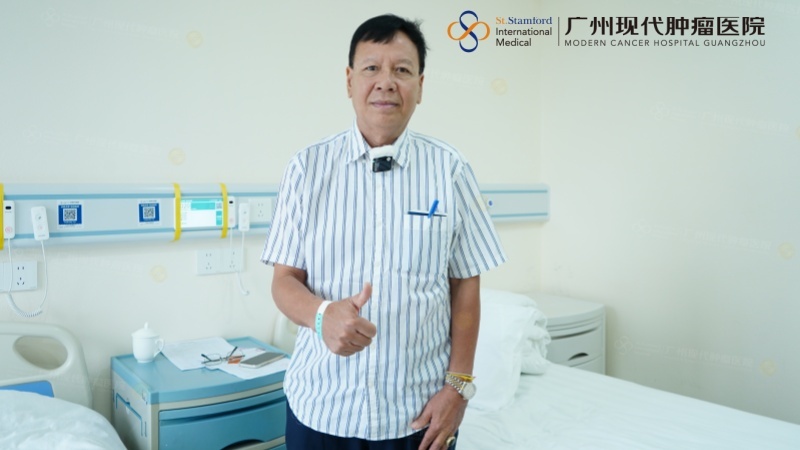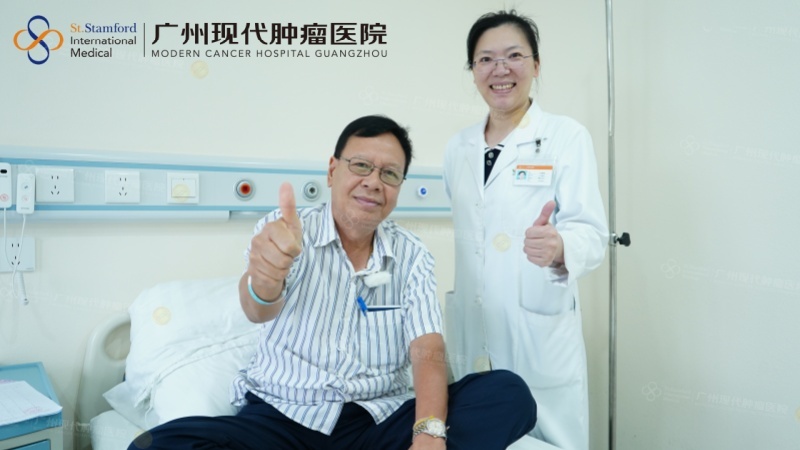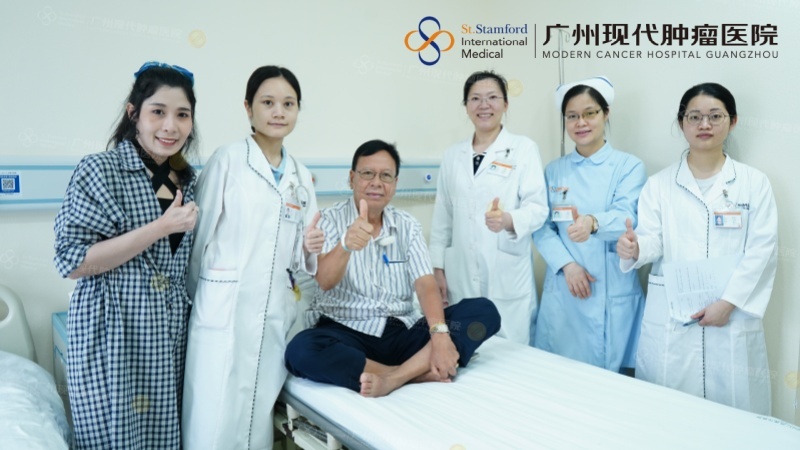A trustworthy choice for your health

Kaisone
When I first met Kaisone, a liver cancer patient from Laos, it was five years ago. He was diagnosed with liver cancer in 2019 and traveled around the world to seek treatment. After refusing the surgical recommendations of the local hospital in Thailand, he came to our hospital for comprehensive minimally invasive treatment. Following the treatment, he was "healthy as usual," which made him very excited. However, in 2023, more than three years of epidemic time prevented him from getting regular check-ups, causing the cancer to spread and metastasize. As soon as the epidemic was over, he returned to our hospital for integrated minimally invasive treatment. The years changed, but the immediate treatment effect remained the same. In May 2024, this old friend came to our hospital again, mainly to boost his immune system. At this time, his physical condition was stable and his spirits were vigorous. For more than five years, at every stage, he entrusted his health to St. Stamford Modern Cancer Hospital Guangzhou without hesitation.
With minimally invasive therapy, it's like having a new life
“Before the treatment, I was waiting for death with a negative mindset. However, after undergoing two minimally invasive interventional therapies, the original tumor shrunk by 80%, and all the body's indicators returned to normal.” During the pandemic, I was unable to leave the country and had no access to treatment. Faced with the deterioration of my body, I was disheartened and silently waited for death, but things took a turn for the better. In 2023, just after the epidemic ended, Kaisone returned to our hospital. Our original team of doctors, who were familiar with his condition, immediately formulated an effective treatment plan. Kaisone's condition was effectively controlled, and now he is in good health after a year's review.

Kaisone and Director Ma
"I like playing golf. Many of my friends who had cancer opted for radiotherapy and chemotherapy and I never saw them back on the golf course. I never experienced vomiting, hair loss, weakness, and long-term damage caused by systemic chemotherapy. This highlights the clear advantages of minimally invasive intervention." As a lung cancer patient, Kaisone described the advantages of interventional treatment in the most simple way. He may not be able to use professional medical terms to explain that minimally invasive intervention uses non-intravenous injection, directly reaches the tumor, and does not damage normal cells, but he shares his real experience to demonstrate how minimally invasive intervention is friendlier to cancer patients. The biggest highlight of a minimally invasive intervention lies in "minimally invasive" and "intervention". The wound is small, only a 1-2 mm incision is needed, and the drug is administered by puncture under the guidance of medical imaging equipment such as CT. The drug concentration is 2-92 times higher than that of systemic chemotherapy. It has the characteristics of no surgery, small trauma, good effect and fast recovery of patients.
When asked why he chose to come to our hospital even though he had relapsed after the first treatment. Kaisone said that for cancer patients, the main goal is to prolong their lives and improve their quality of life. He believed that cancer cure is a global issue, and it's important for qualified cancer patients to have the mindset that they cannot expect to be cured in one surgery. Instead, they should follow the doctor's advice and go through regular reviews. However, due to the epidemic, treatment was interrupted, leading to the recurrence of liver cancer, which was not caused by technical issues. Kaisone trusted the technology of St. Stamford Modern Cancer Hospital Guangzhou. He mentioned that the minimally invasive technology at the hospital is far ahead of Laos in terms of integrated minimally invasive treatment concepts, advanced treatment equipment, and experienced doctors. This is why he chose to come back for treatment as soon as the epidemic was over. The results showed that Kaisone's choice was the right one, and he was able to welcome a new life for himself once again.
Thoughtful service makes my life worry-free

Kaisone and medical staff
"In this hospital, I don't have to worry about language barriers, food, or any other details. Every aspect of the hospital is well thought out. The interpreters and medical staff are always there for me." Kaisone faced the camera and spoke easily about how the medical staff and interpreters had just finished checking his room and scrutinizing his health indicators. He mentioned that the International Service Center staff had helped him prepare for departure by assisting with passport applications, purchasing a plane ticket, and arranging for a special car to pick him up and drop him off at the airport. He mentioned that he was able to check in immediately without having to wait at the hospital, and the entire trip went smoothly without any delays. He expressed his gratitude to the hospital's medical staff and service center staff for taking care of everything and ensuring that everything was properly arranged, allowing him to focus on his recovery without being burdened by life's trivialities. He also expressed appreciation for their excellent medical skills and dedicated professionalism.
St. Stamford Modern Cancer Hospital Guangzhou is committed to protecting your lifelong health
"This is the third time I have chosen to come here for treatment, and I sincerely want to say to the majority of cancer patients that if you are seeking a better and more reliable treatment, please come here." St. Stamford Modern Cancer Hospital Guangzhou has accompanied millions of international patients from Southeast Asia, Europe, and the United States to succeed in their fight against cancer, and lit a beacon for them on their journey against cancer. We not only have the world's cutting-edge minimally invasive treatment technology, but also the highest quality of multinational medical services, and will continue to escort the majority of international cancer patients.
*Surgery, in addition to the appropriate chemotherapy and radiotherapy, are effective in treating early cancer, but certain patients in late stage of cancer may not be tolerate surgery well as they can be relatively weak. A combination of carefully planned minimally invasive therapy, chemotherapy or radiotherapy can effectively reduce the side effects and discomfort of treatment and may help patient get better efficacy.













 viber
viber